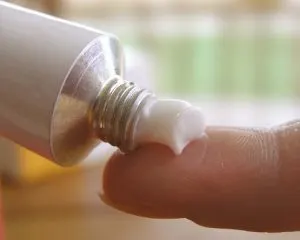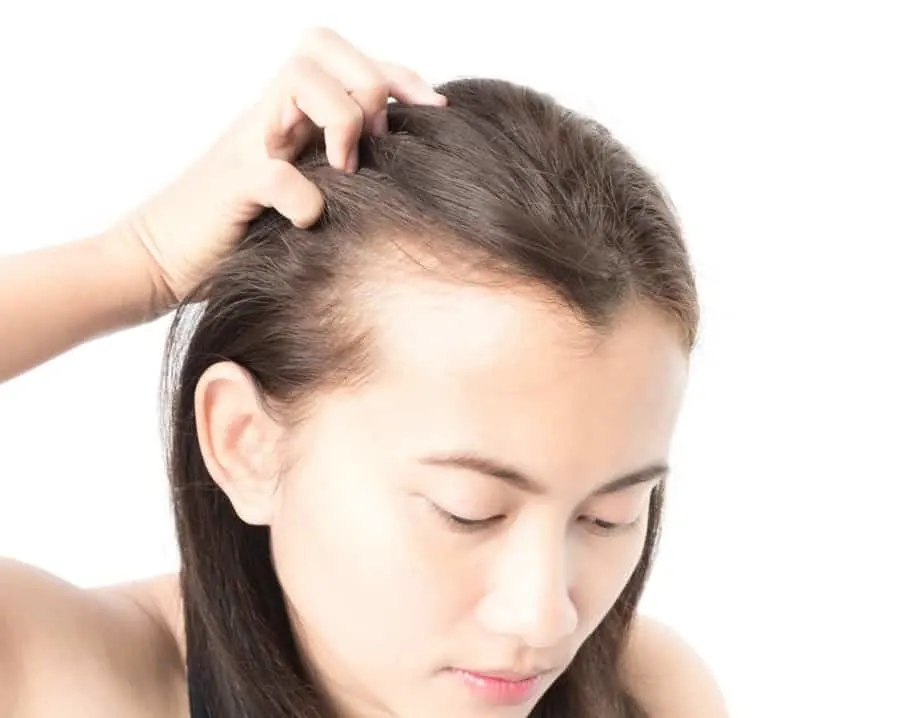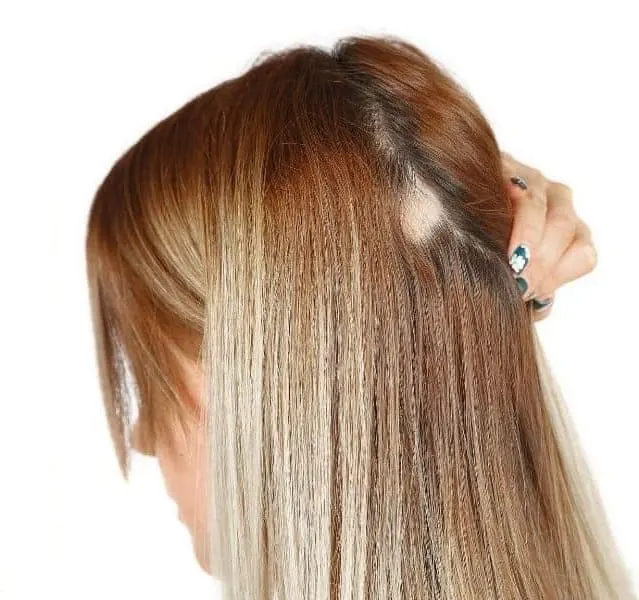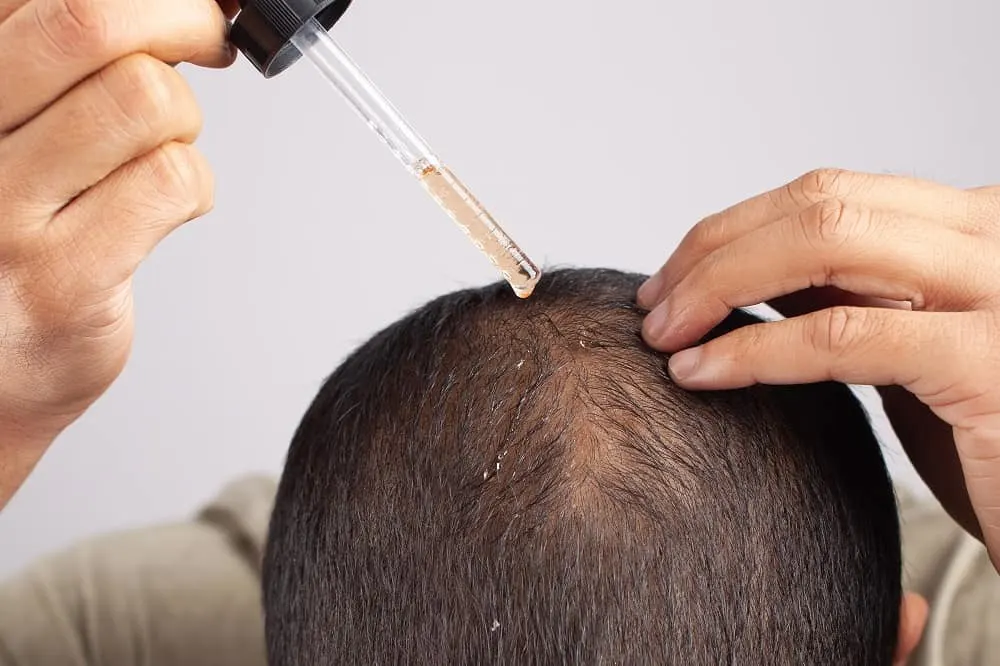Hair loss can be frustrating, but it can be even more frustrating when accompanied by another medical condition, like an autoimmune disease.
However, today, there are medications, like fluocinonide for hair loss, in the market that specifically act to reverse the effects of autoimmune disorders. When used consistently over time, fluocinonide can stop or even reverse hair loss associated with autoimmune disorders.
What Is Fluocinonide Used For?

Fluocinonide is a common, strong topical cream used to treat skin conditions. These conditions include eczema, rash, and allergies. Doctors also prescribe fluocinonide to prevent hair loss in anyone suffering from this condition due to autoimmune disorders like alopecia or lupus.
Fluocinonide is in the strong corticosteroid category. Corticosteroids work to mimic naturally-occurring hormones in the body. However, when introduced into the body in extreme amounts, corticosteroids can suppress one’s immune system. Suppressing the immune system helps the body fight certain autoimmune disorders where cells attack the body.
Alopecia is one of those autoimmune conditions. Alopecia is a medical condition where the immune system attacks the hair follicles, causing hair loss. Alopecia typically happens in patches (alopecia areata), making it less noticeable to others. However, in extreme cases, those patches can start to appear next to each other, making the hair loss much more noticeable and bothersome.
Lupus is another autoimmune disorder that can cause hair loss. Lupus can affect several body parts, including the face and scalp. When lupus causes inflammation on the scalp, it can create issues for the hair, ranging from thinning out to falling out in clumps. Lupus can also cause breakage around the hairline, causing the hair to become fragile and break off.
Both men and women can suffer from alopecia, which can happen for no particular reason. Lupus affects men and women, but studies show it affects women more often. Nine out of ten people who have lupus are women. Both alopecia and lupus can affect people of all races. Several topical medications can help stop hair loss, including fluocinonide for hair loss.
Will Fluocinonide Help with Hair Loss?

Studies on using fluocinonide for hair loss show it can help with the condition, but only in specific cases. Fluocinonide is best at treating hair loss issues related to autoimmune disorders, like alopecia or lupus.
As mentioned above, fluocinonide is a strong corticosteroid, meaning it works to suppress the immune system and decrease inflammation. When a medication does this, it can allow the body to stop attacking itself (in this case, the hair follicles) and stop hair loss or even reverse it in some cases.
One study on the use of fluocinonide in lupus patients showed promise. In the study, those who used a high-potency fluocinonide for hair loss showed improvements at a rate of 27 percent, compared to 10 percent on a lower-dose medication.
Studies on hair regrowth in alopecia patients are also promising. One study showed patients using topical fluocinonide twice a day showed a 54 percent increase in hair growth over the patients using a placebo ointment.
Even patients with more extreme hair loss saw an improvement with fluocinonide. This study is especially encouraging for those who suffer from a lot of hair loss.
Doctors will often prescribe topical fluocinonide for young children suffering from hair loss due to an auto-immune disorder. The topical cream is easier for young people to tolerate (as opposed to steroid injections). And since fluocinonide has relatively low side effects, it is considered safe for younger patients.
Typically, patients using fluocinonide will see an improvement in as little as two weeks. Continued use shows even greater results. Studies show continued use of fluocinonide for hair loss over six months can help stop hair loss or even reverse it in some cases. The key to using fluocinonide for hair loss is consistency. Consistent use gives the patient the best chance at seeing results.
Fluocinonide for hair loss is a baseline medication for hair loss associated with autoimmune disorders. Conditions like alopecia and lupus normally need medication for a longer period.
Fluocinonide is overall considered safe for long-term use because it has relatively mild side effects and is easy to use. For this reason, fluocinonide is a safe and effective option for long-term hair loss results.
With both lupus and alopecia, a patient can experience some amount of relief from their symptoms, only to relapse some time later. And while patients may respond well to fluocinonide the first time, more studies need to be done on repeat uses. It is unclear how effective fluocinonide for hair loss is during subsequent rounds of usage.
How Do You Use Fluocinonide?

Fluocinonide is a topical medication, meaning you apply it to your skin in a cream, gel, or ointment form. Fluocinonide is available by prescription only and in different strengths.
A patient will only apply a thin layer of fluocinonide onto the affected skin. The number of applications needed per day will depend on the condition one is trying to treat and the patient’s age. It is important only to apply fluocinonide to the affected area and not let it get into the eyes or mouth.
Once fluocinonide is on the scalp, give it time to dry completely before washing the hair. Allowing the medicine to dry will allow it to absorb and work completely.
Once the fluocinonide is on the skin, it is important not to put any wrapping or bandage over the affected skin (unless told by a doctor to do so). Wrapping or covering up the medicated area can increase how much fluocinonide enters through the skin, potentially causing an overdose or severe reaction.
What Are The Side Effects Of Fluocinonide?
The side effects of fluocinonide for hair loss are relatively mild and typically go away after continued use. Side effects include burning, itching, and irritation. But, these symptoms seem to subside as the body gets used to the medication over time. However, it’s important to call a doctor if any of these symptoms worsen over time instead of better.
In rare cases, fluocinonide can absorb into a patient’s bloodstream. If this happens, a patient can feel extremely tired, lose weight, have vision issues, have swollen ankles or feet, or trouble breathing. These symptoms require a doctor’s attention.
Even rarer is a severe allergic reaction to fluocinonide. Signs of an allergic reaction include trouble breathing, a severe rash, or tongue swelling. Anyone suffering from these symptoms must also seek medical attention immediately.
Fluocinonide Alternative for Hair Loss

Minoxidil is an over-the-counter topical medication commonly used as a treatment for many different kinds of hair loss, including alopecia areata. Your doctor may direct you to use it on its own or alongside a corticosteroid like fluocinonide.
Minoxidil has fewer side effects than many other hair loss treatments. Unlike fluocinonide, it is safe to use continuously. But it is not effective at treating extensive hair loss alone.
Fluocinonide is not the only corticosteroid used for treating hair loss caused by autoimmune conditions. Your doctor may prescribe a different corticosteroid like betamethasone valerate, clobetasol propionate, or dexamethasone.
FAQs
Read these frequently asked questions to learn more about fluocinonide and hair loss.
Somewhat yes. Doctors prescribe fluocinonide to treat hair loss caused by various autoimmune and dermatological conditions. While it can aid in hair regrowth in these cases, it will not improve hair growth in healthy people.
Yes. Fluocinonide is a topical medication, meaning that you apply it to your skin, so it is safe to use on your scalp if a doctor has prescribed it to you as a hair loss treatment.
You can leave fluocinonide on your scalp until you wash your hair. Do not use it for more than two weeks at a time unless directed otherwise by your doctor.
No, leave topical fluocinonide on your skin for as long as your doctor directs. It will not work if you wash it out immediately after application.
Yes. Fluocinonide may be prescribed for scalp psoriasis in adults and children older than 12. Only use fluocinonide to treat scalp psoriasis if your doctor prescribes it to you for that purpose.
The Bottom Line
If a patient is suffering from hair loss, there are many medications and products on the market that can help remedy that situation. It is important first to pinpoint what exactly is causing a person’s hair loss. Figuring out the root cause of hair loss will help doctors prescribe the medication that will be the most effective.
Fluocinonide for hair loss is a popular and mainstream medication, but only for hair loss associated with autoimmune disorders.
Patients taking fluocinonide for hair loss may see results in as little as two weeks. And since doctors consider fluocinonide safe to use over longer periods, a patient may see even better results after months of daily treatment.
